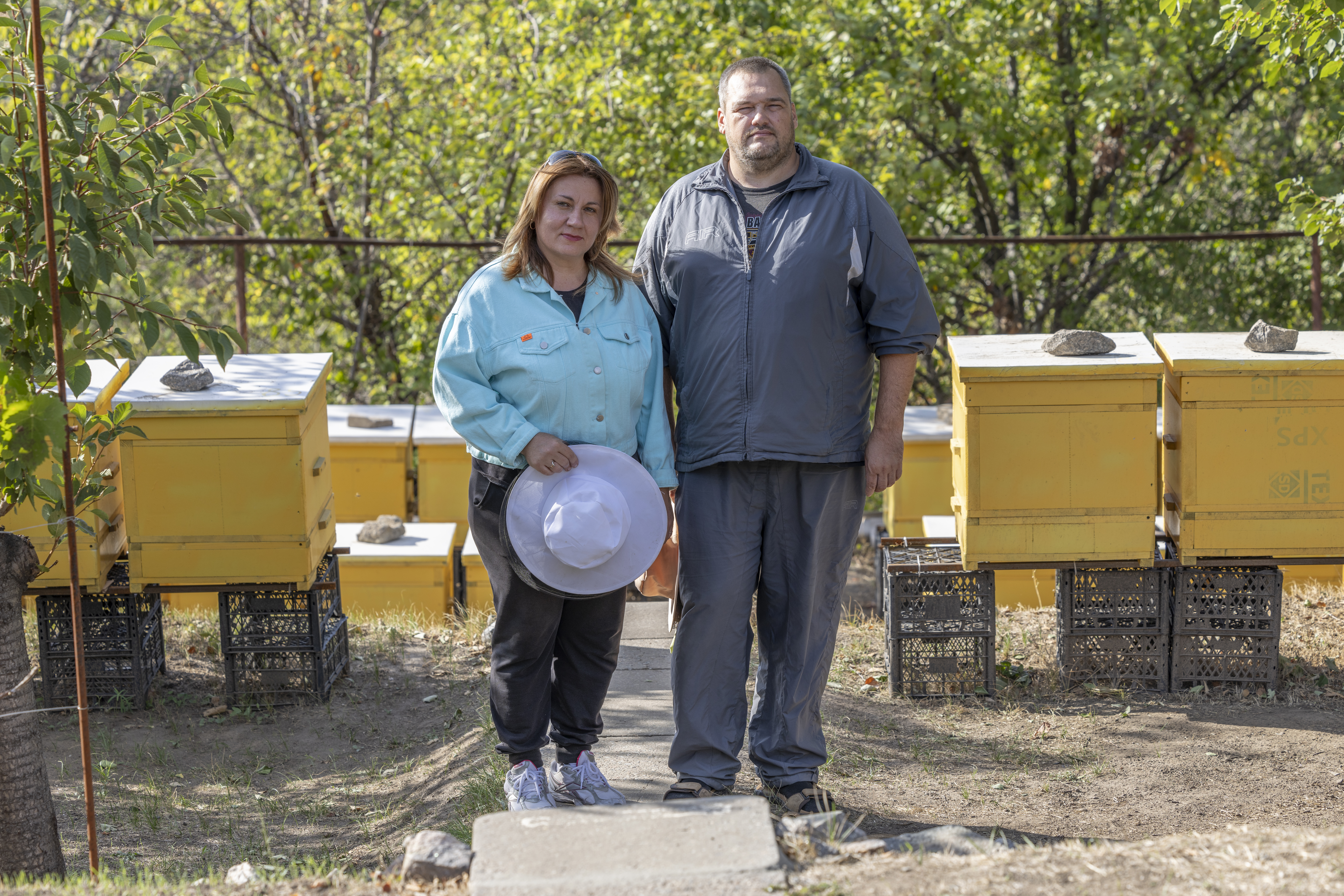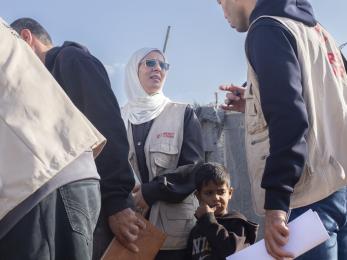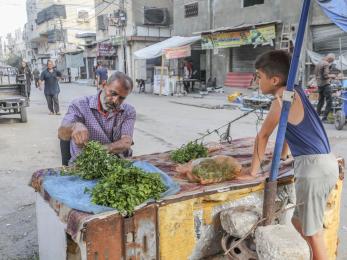Clean water access in Gaza: A lifeline under blockade
Gaza’s economy has collapsed under the weight of conflict and blockade, with food prices soaring up to 7,000% since October 2023. Over 95% of families face severe financial hardship, and availability of any household goods, let alone food or fresh vegetables, is nearly nonexistent.
People survive on beans and dry chickpeas, with reports of dizziness and fainting in the streets from lack of food and water. As the Mercy Corps Country Director in Palestine, I’ve witnessed the devastation first-hand on a recent visit to central Gaza.
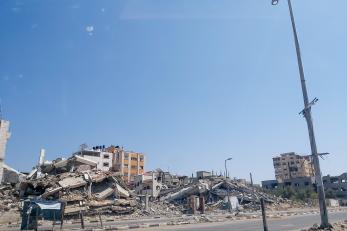
Despite severe restrictions, Mercy Corps and local partners have reached over 350,000 people in Gaza since October 2023 with food, hygiene and shelter kits, water distributions and cash assistance. We’re adapting to the aid blockade by providing cash through mobile codes and e-wallets, offering psychosocial support to help adults and children cope with the mental toll of the conflict, and expanding water trucking and latrine installation to help stem the tide of dehydration and disease.
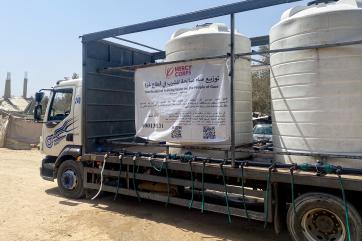
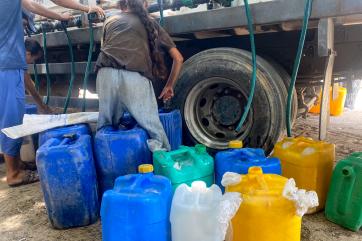
Since June, Mercy Corps has been working with local partner organization, Palestine Environmental Friends, to deliver clean water to households living in camps for displaced people. Our team is working to stretch resources and reach as many families as possible through December 2025, when current funds are expected to run out.
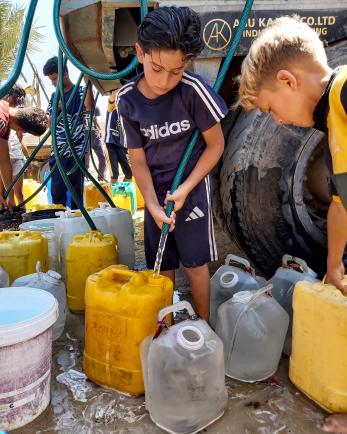
Recently, I joined our team for water deliveries in Deir al-Balah. We made stops across three sites at two separate camps. Adults and children gathered with jerrycans, buckets, and whatever containers they could use to carry water back to their tents.
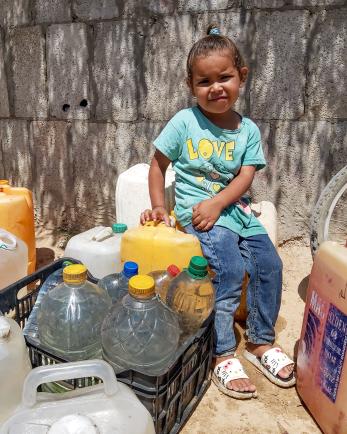
It struck me to see so many children helping at the water deliveries. As a mother of three small children, I saw these kids and thought they should be in school or on a playground—anywhere other than collecting water for their families.
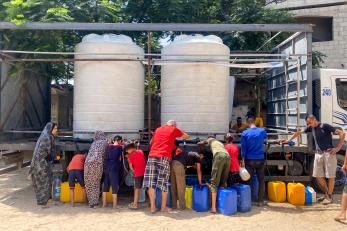
Every day in central Gaza, Mercy Corps is delivering clean water to an average of 800 households (approximately 4,000 individuals) in Deir al-Balah. We’re prioritizing water trucking since much of the water and sanitation infrastructure has been destroyed, and water is a basic necessity for life. But the scale of need far outpaces what little we can provide, due to limited funding and restrictions to bring in additional goods.
Over half a million people in Gaza are already living through famine—facing hunger, desperation, and preventable deaths, according to a new report from IPC (Integrated Food Security Phase Classification), a leading agency analyzing food security. And in the coming weeks, famine conditions are expected to spread beyond Gaza City into Deir Al Balah and Khan Younis. We need a lasting ceasefire to restore basic services like water and electricity, and safe routes to deliver humanitarian aid. Without this, millions more will continue to face starvation and disease in Gaza.

